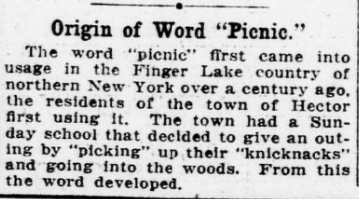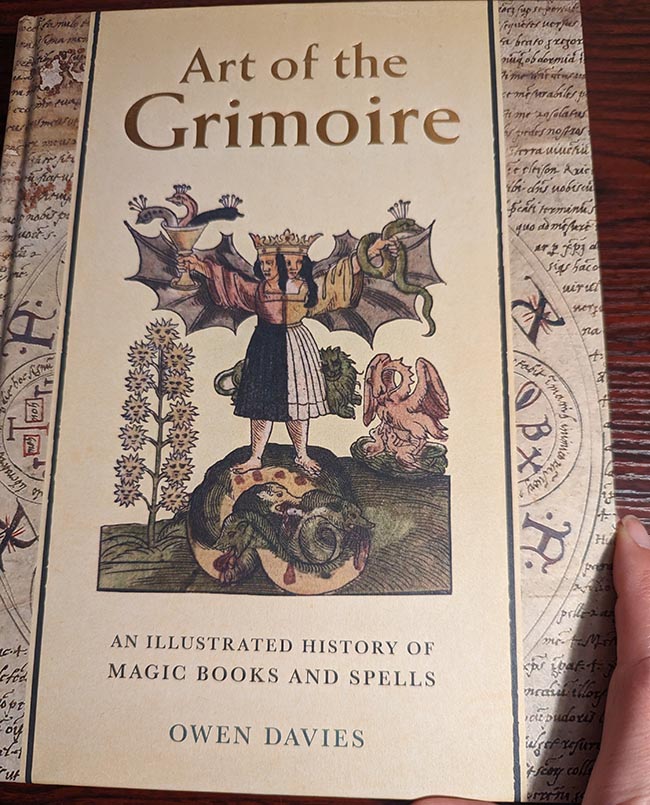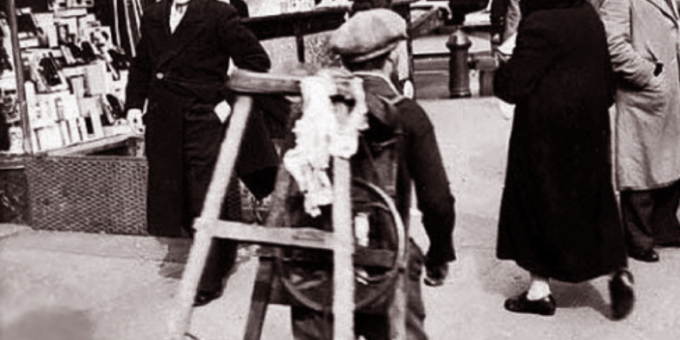
Over a hundred years ago, women would wait and listen for a particular bell to ring – that of the scissor grinder. His bell had a certain ring to it that people could identify from far away, and homemakers would rush to their windows and call out to him.
He would walk up to their windows, with his grinding wheel slung over his back, bell in hand, and the housewives would hand him their scissors and knives. He would sharpen them on site and then move to the next open window.
Such was the scene until the 1950s when newspapers cried out about the dying profession. By that time, the scissor grinder was a local man working out of his truck and used electric tools to sharpen the tools of the kitchen.
The trade had lost all of its charms. However, the memory of the profession lives on in newspaper accounts from the past.
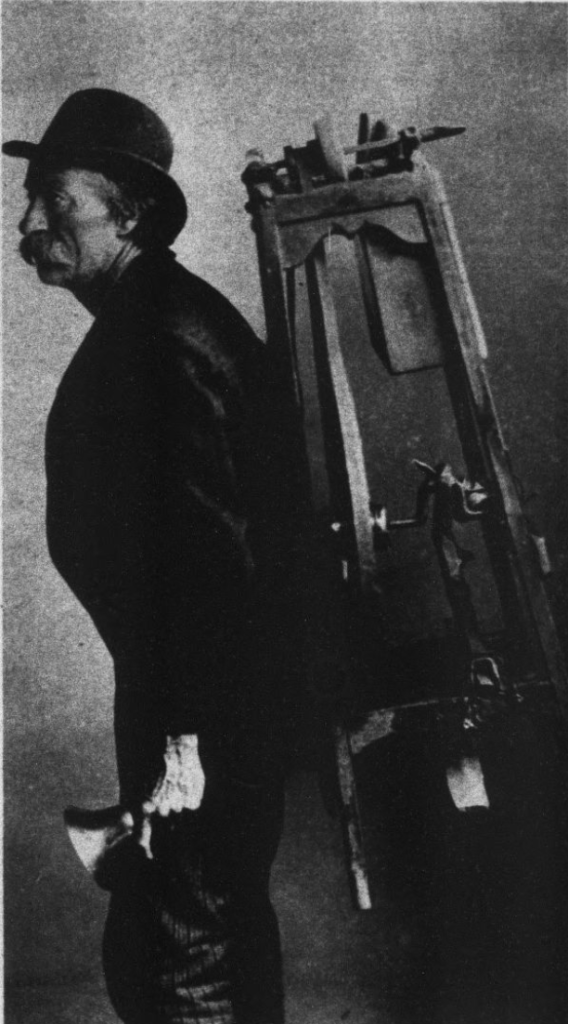
Life on the Road
Before scissor grinders took to automobiles, they traveled on foot from town to town. They often slept outdoors or in the homes of friends they had made along the way.
Constantly moving from place to place, these men seldom had wives. Instead, they cherished their independence and lived off the dimes and quarters they earned from the housewives.
Tools of the Trade
There are stories about young men who did not like the daily humdrum of working in a factory and having a boss. They, instead, turned to the trade of scissor grinding as a way to set themselves out into the world and earn a bit of money along the way.
The tools of their trade were basic. There was the bell, the grinding wheel, some oil, and rags. He carried all these items on his back.
Newspaper Announcements
While homemakers often kept an ear ready for the scissor grinder’s bell, by the early 1900s, we saw newspaper announcements. Grinders coming to town would publish a few lines in the paper with their name, where they would be, and for how long.
Men who were in the trade for many years gained a following. They had regular customers who would only allow them to sharpen their kitchen tools.
Children gathered around, and following the scissor grinder was also a common sight.
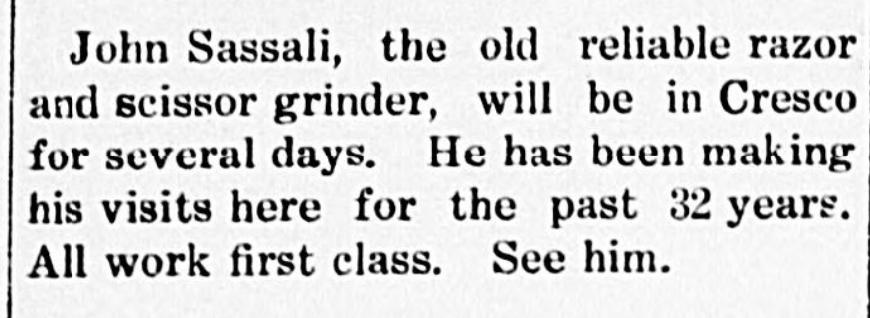
Their Loss was Noticed
Despite these men living on the edge of society, people recognized their importance. So when a scissor grinder’s life was lost, everyone knew about it.
For example, in 1842, the death of a scissor grinder was given a roughly 4-inch column about his death. That was far more than the average one to two-sentence remarks on the ends of regular citizens. In this case, someone had spilled gunpowder on the ground. As the scissor grinder worked his trade, sparks ignited the gunpowder, and he was killed in the explosion.
In 1896, “Old Scissors,” as he was affectionately called, was run over by a locomotive. As a result, he received nearly an entire newspaper column dedicated to his life and death.
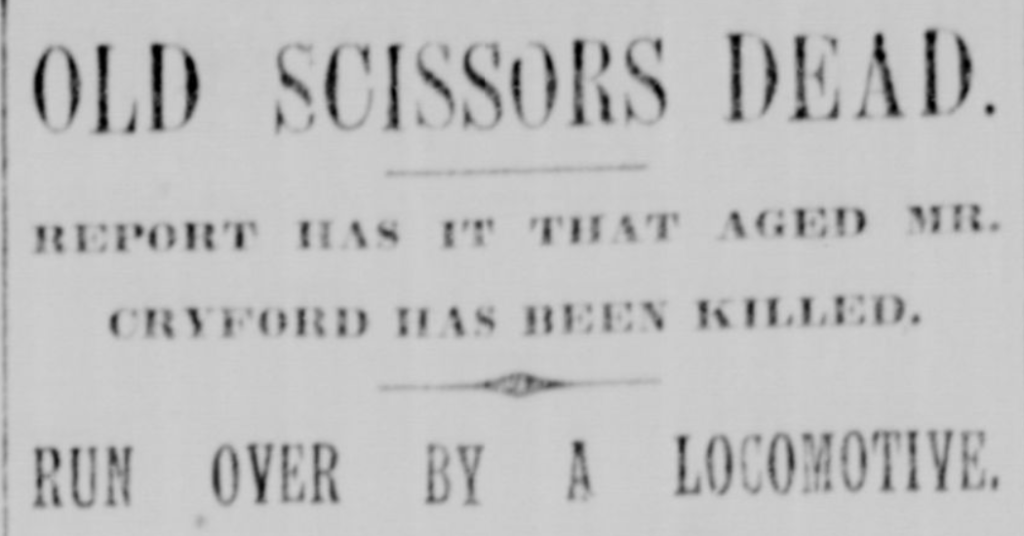
Such was the importance of the scissor grinders of the past.
As an aside, there were also men who traveled from town to town selling brooms, collecting rags, and fixing umbrellas.
Sources:
Evening star. (Washington, D.C.), 20 Nov. 1955.
Twice-a-week plain dealer. (Cresco, Howard County, Iowa), 14 Oct. 1910.
The Cecil Whig. (Elkton, Md.), 15 Jan. 1842.
Richmond dispatch. (Richmond, Va.), 30 Dec. 1896.

